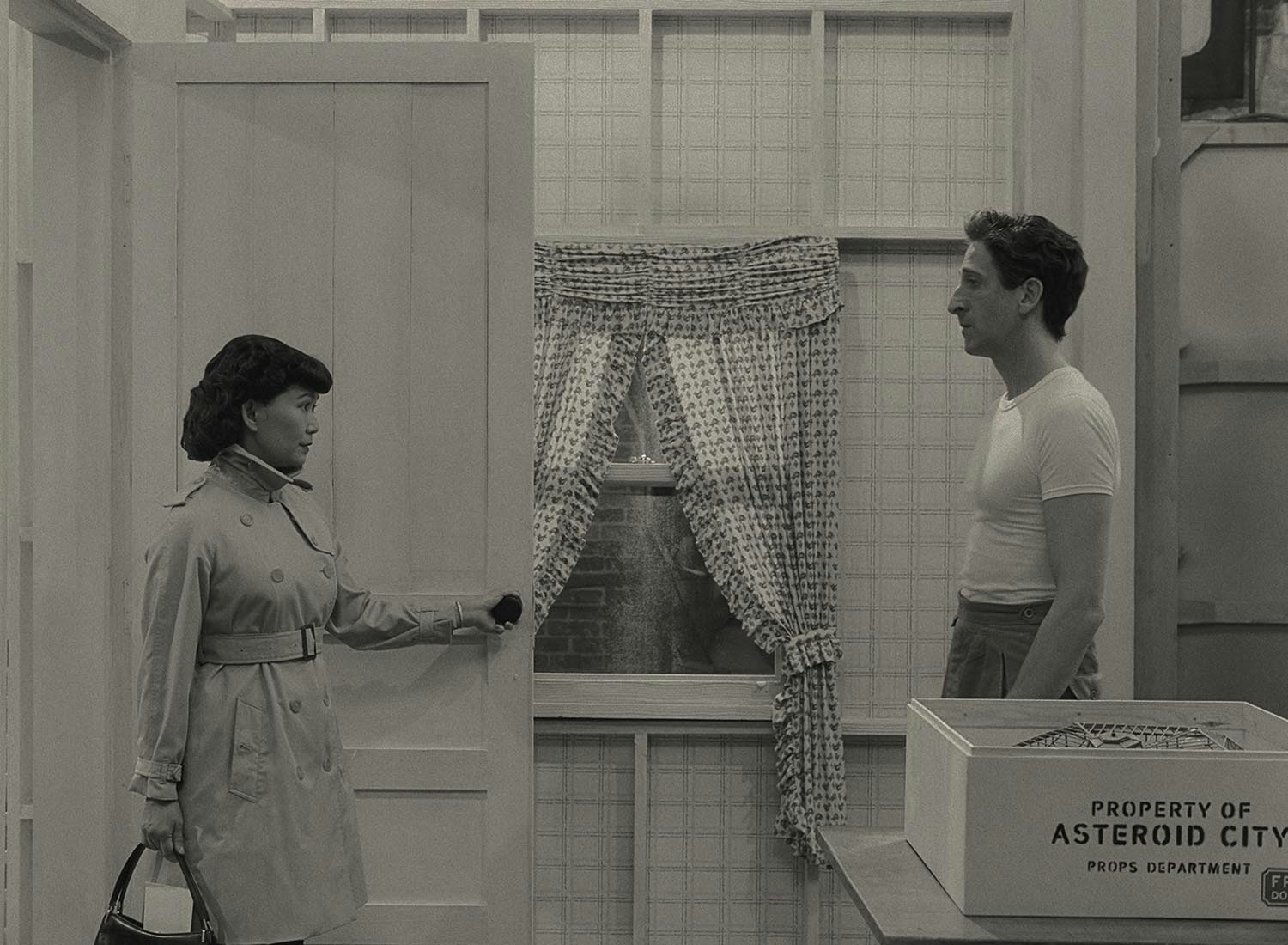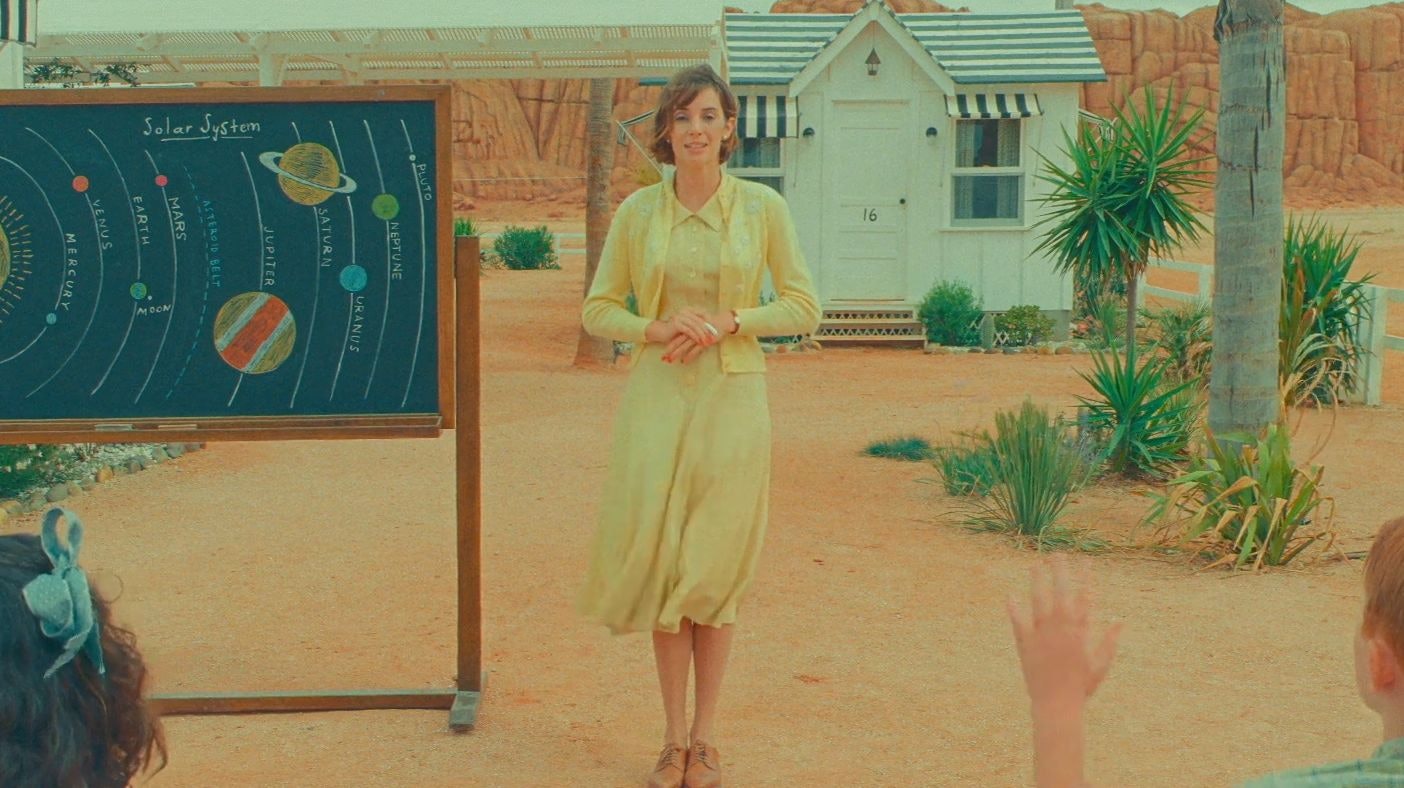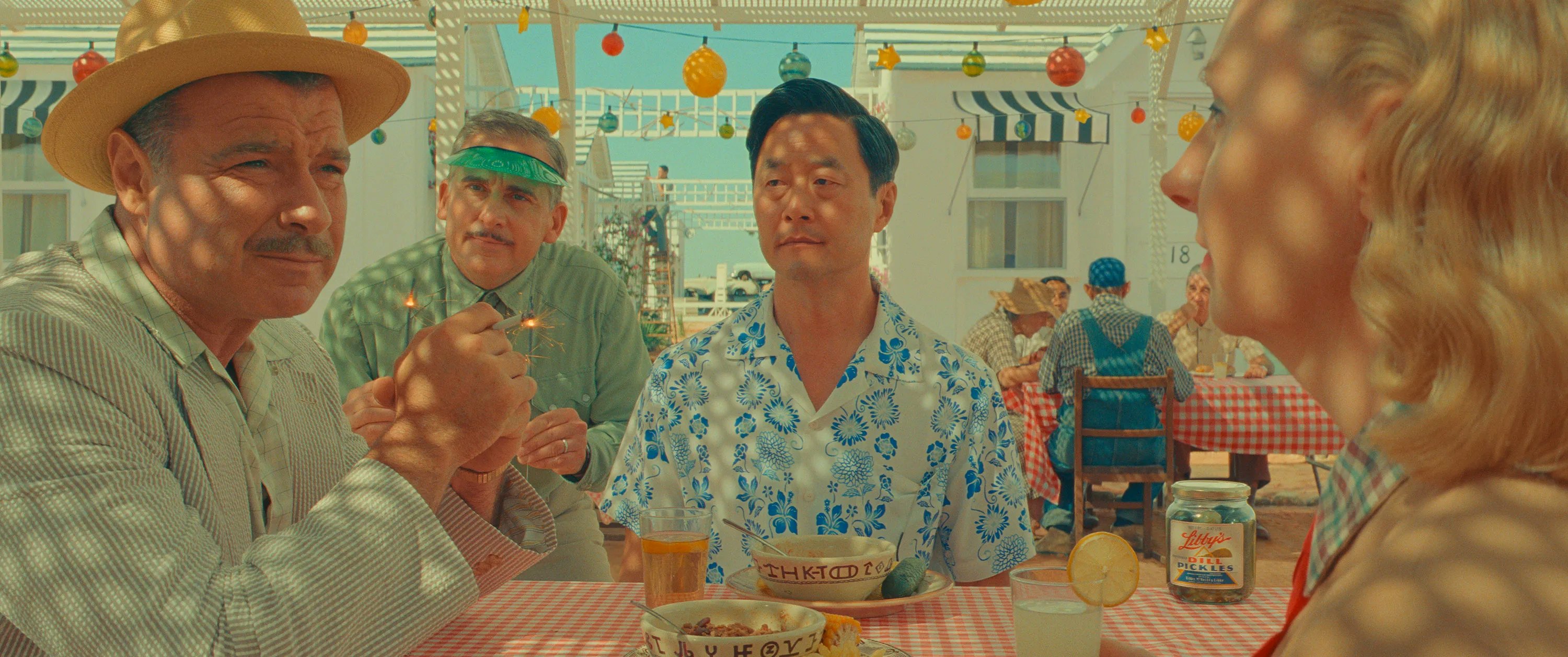
“I still don’t understand the play,” Jason Schwartzman’s character says at a key moment in Asteroid City. Apparently, he’s not alone.
Wes Anderson’s latest confounding Rubik’s cube of a movie, is a play within a TV show within a movie. It’s a story of a small group of people making contact with an alien, but it’s also a story about the making of a stage play. Ultimately, it might be a story about grief, and love, and how the cosmos are too big and vast for humans to even try to comprehend.
It might be the most Wes Anderson movie ever — a film about processing big, messy emotions through a layer of artifice to make them easier to digest, or at least, easier to ponder. The jam-packed cast of Asteroid City is tasked with pulling double duty — many of them playing the characters within the “play” Asteroid City while also playing the actors putting on these performances.
“The story, I think, is a metaphor for the story of our lives.”
It leads to one of the most emotionally fulfilling moments of the film when Augie Steenbeck (Jason Schwartzman) stops in his tracks in the middle of the play’s chaotic climax and walks offstage. He wanders through half-built sets and aliens in costume until he reaches the play’s director, Schubert Green (Adrien Brody). The actor playing Augie, Jones Hall, doesn’t understand the play. Is he doing right? Why is he doing what he’s doing? He asks Schubert what it all means. But Schubert doesn’t have an answer for him.
Instead, Anderson leaves it up to the audience to interpret what it all means. So Inverse asked the cast of Asteroid City what they think the play is about.

“The story, I think, is a metaphor for the story of our lives,” Jeffrey Wright, who plays General Grif Gibson, says. “And I think maybe if you can distill it down to one thing, the story, the play, is about pressing on. It's about persevering, surviving, and maybe even flourishing. It's about: keep moving.”
Adrien Brody, one of Anderson’s most frequent longtime collaborators, is impressed by Wright’s succinct, yet thought-provoking, answer. “That’s good,” he says, before musing on his own answer.
“It doesn't necessarily matter if you don't know what it's about.”
For Brody, Asteroid City is about acting and filmmaking and how they’re related to the American dream. “We are telling a story about the West, and the West in another time, a nostalgic time in American history. And it's really a theater production made in the East, envisioning the West, which is also very interesting,” Brody says, in a long, rambling answer as esoteric as his character. (He also mentioned Elia Kazan and Marlon Brando as influences on the film.)
Rupert Friend, who plays a singing cowboy named Montana in the film, notes that “it doesn't necessarily matter if you don't know what it's about.” Instead, Asteroid City speaks for itself. “I'm really big on ‘the song is the song.’ The poem is the poem,” he concludes.

But Friend’s screen partner and love interest, Maya Hawke, has a much warmer read on the film. “I feel like there's this thread of the movie really being about love, which maybe everything is about, at its core,” she says.
Hope Davis, who plays one of the parents of a young scientist attending the Junior Stargazer Awards in Asteroid City, probably has the most accurate assessment of the different layers of the movie: “On one level, the play is about being an American, and what does that mean? It's also about people looking for love and trying to find connection and wondering what they're doing here on this planet and if they're doing it right. It's just a portrait of all these very tender and searching human beings.”
Stephen Park, who plays another parent, naturally brings it back to the children, who carry the emotional thread of the film. “It's a celebration of intelligence, human intelligence, and also wonder,” he says. “Wonder at the unknown and trusting. Keep telling the story, keep moving forward.”

In the end, when Jones Hall desperately asks Schubert Green what the play is about, Schubert only responds, “That doesn't matter. Just keep on telling the story.”
It will reach the audience it’s seeking. They might see it as a story about love, or wonder, or the next generation, or about filmmaking and acting, or about the vastness of the cosmos. But it will all make sense, eventually.







